At LiveWest, we are Creating Greener Futures Together. We are working with our customers and partners to ensure sustainability lies at the heart of our organisation, shaping healthier futures across our communities.
Every month, we share some of our favourite green advice, to help our customers and colleagues live more sustainably.
5 June 2023 is World Environment Day and the theme this year is Beat Plastic Pollution.
We are working hard as a business to reduce our plastic waste, and we want to bring our customers and colleagues on this journey with us.
So, to celebrate World Environment Day, we are sharing our top tips to cut back on plastic at home, plus the actions we are taking to beat plastic pollution as a business.
Keep reading to find out more, or for more sustainability advice and information, visit our green advice page.
Beating plastic pollution:
Plastic is everywhere, from the packaging our food comes in, to the clothes we wear. It is estimated that, globally, we now produce over 300 million tonnes of plastic a year, of which 60% is never recycled.
This plastic has a high environmental cost, taking hundreds of years to break down, harming wildlife and creating microplastics – tiny pieces of plastic which move through the food chain, spreading harmful chemicals.
The good news is that taking action to beat plastic pollution is something we can all get involved in.
How you can reduce your plastic waste at home:
1. Scrap single-use and save money with reusable items.
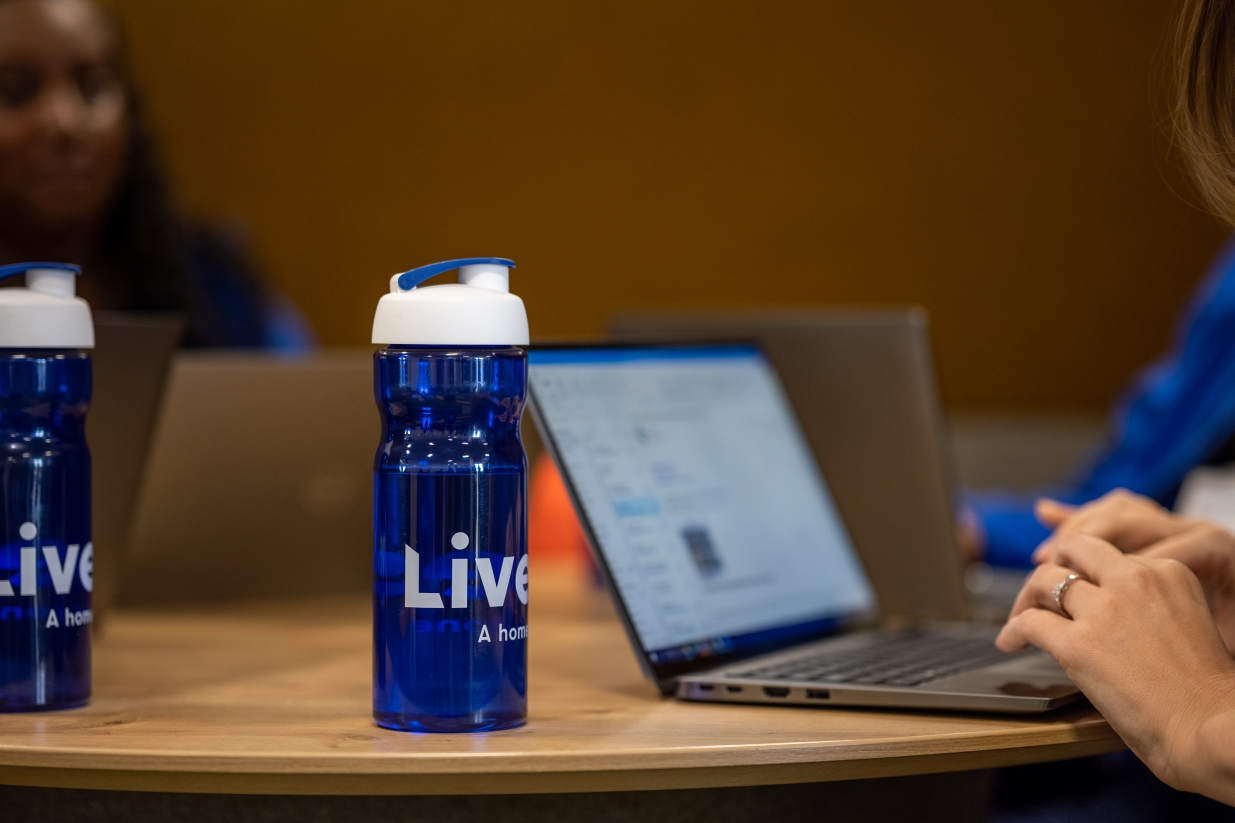
From coffee cups to water bottles to shopping bags, single-use items are designed to be used once and then thrown away. Many of these are made from plastic. You may only use these items for five minutes, but they could take hundreds of years to break down.
You can make a difference by saying no to single-use items and bringing your own reusable alternatives.
Whether that’s bringing a reusable cup with you when you get coffee, always carrying a reusable water bottle in your bag, or just remembering to bring your reusable shopping bags when you go to the supermarket, every time you say no to single-use plastic you are making a difference. You will also be saving money!
You can even go one step further and source second-hand reusable items, giving them a new lease of life. If you have any reusable products you don’t use anymore, give them to a friend or donate them to a charity shop.
Our reusing and recycling green advice page has more information on buying and donating second-hand items.
2. Avoid plastic packaging.
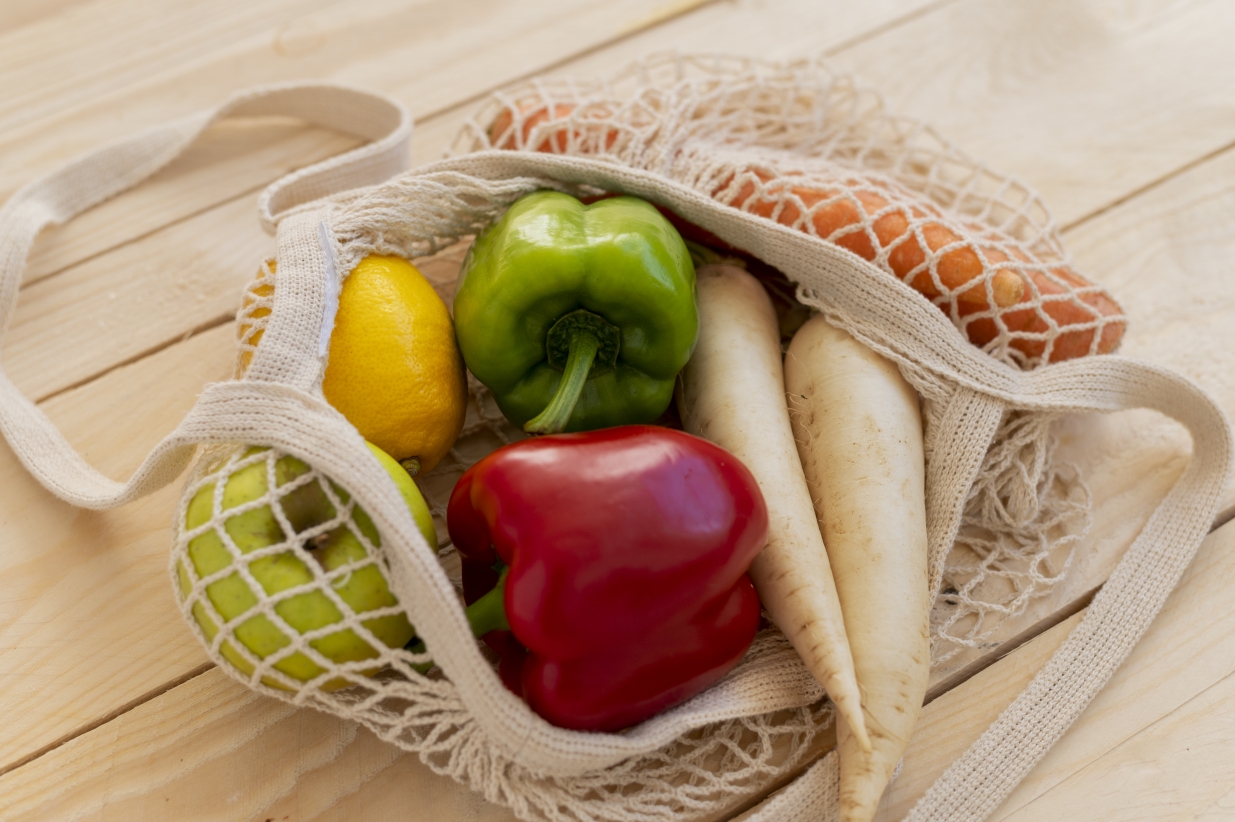
Lots of items come packaged in plastic. Instead, choose items that come packaging free or are packaged in paper or cardboard.
Zero waste stores often stock products like shampoo, detergent, and even cereal without the plastic packaging – just bring your own refillable container and pay by weight.
At the supermarket, opt for loose fruit and vegetables instead of those in a plastic bag. If you have a greengrocer near you, you may be able to buy more packaging-free fruit and vegetables here. Don’t forget your reusable bags!
Our cooking green advice page has more information on how to make sustainable food choices.
3. Prevent plastic pollution when washing your clothes.
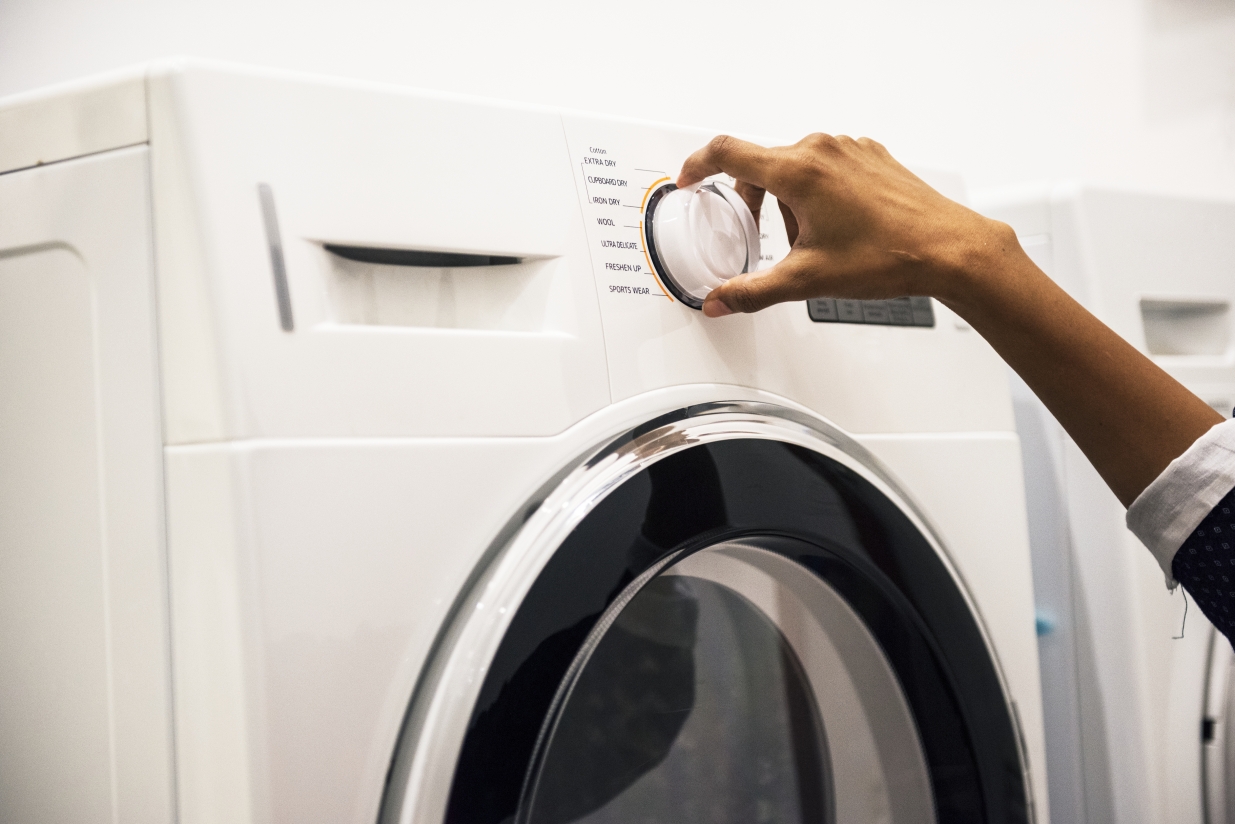
Many clothes are made of synthetic fibres, such as polyester and nylon. When you wash these clothes, plastic microfibres are released. These tiny pieces of plastic come off of synthetic clothing and go into the water supply. They are usually missed by filters and end up in the ocean where they harm wildlife.
Microplastic shedding is caused by three things: abrasion, heat, and chemicals from detergent. To reduce the amount of microplastics being shed from your clothes, wash your clothes on a cooler and shorter cycle. You could also buy a microplastic-catching washing bag, which will catch plastics before they enter the water stream.
Our cleaning green advice page has more information on how to clean your clothes and home without harming the planet.
4. Cut the plastic out of your wardrobe.
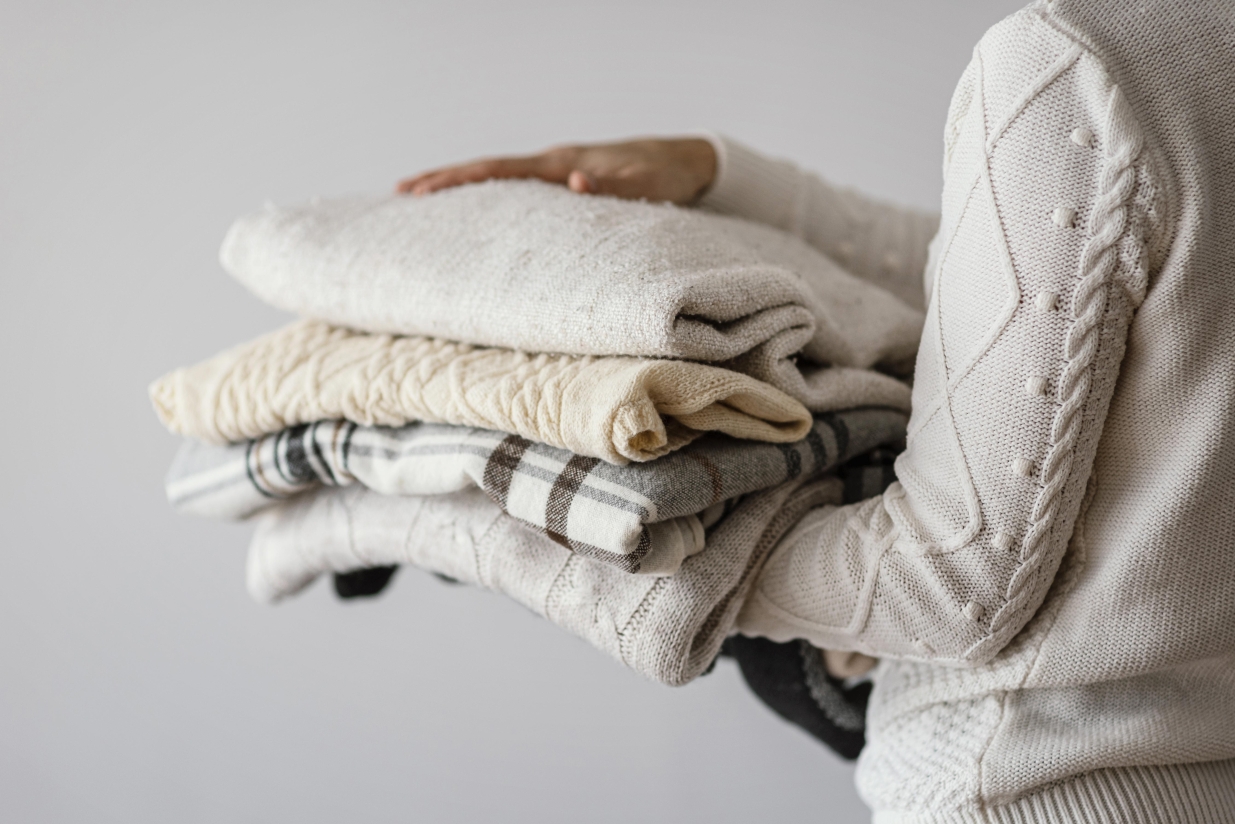
Another way to reduce plastic pollution is to avoid buying new synthetic clothes, as these will add to the microplastic footprint of your existing wardrobe.
By opting for clothes made from natural fibres like cotton or hemp, which don’t contain plastic, you can prevent microplastics polluting the environment.
Our shopping green advice page has more information on how to shop sustainably.
5. Help your pet save plastic too.
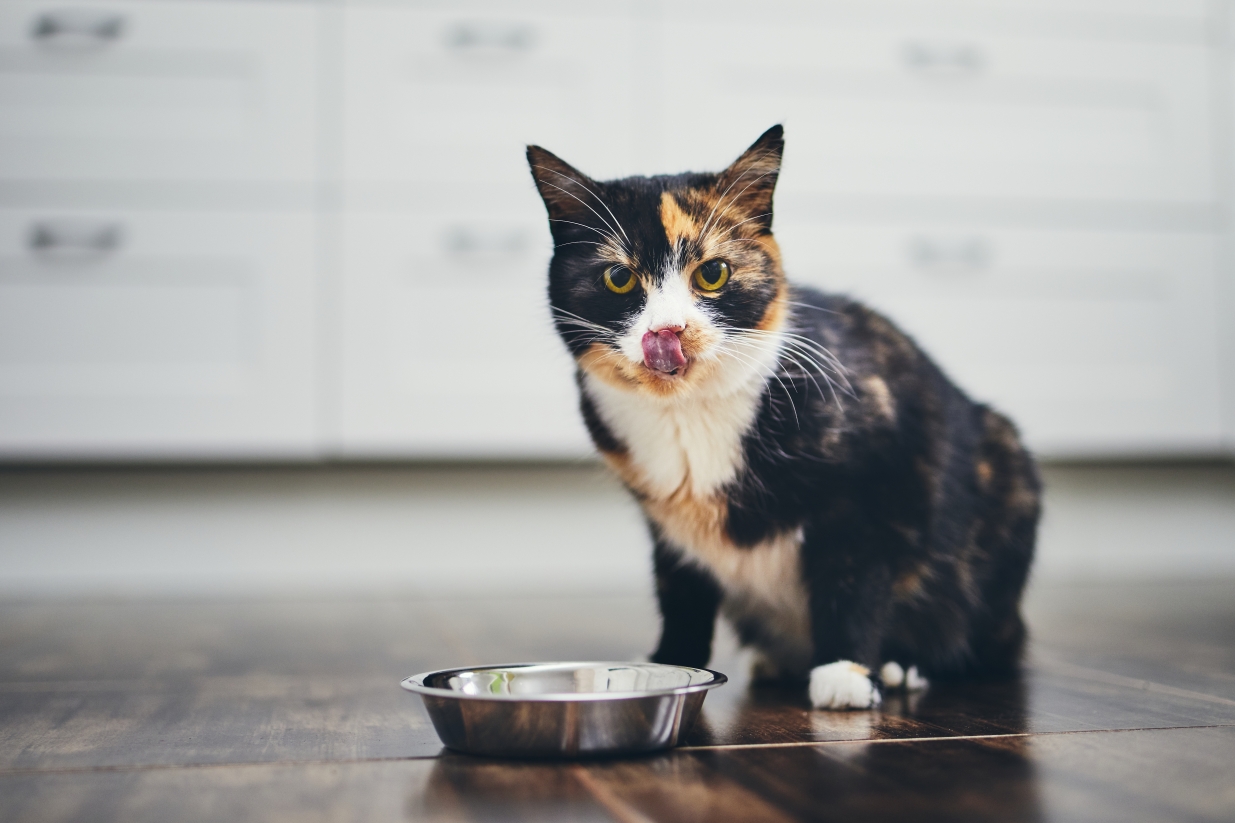
Our pets’ toys, bedding and food bowls are often made of plastic. The food you buy for your pet may also come packaged in plastic.
You can reduce plastic waste when caring for your pet by choosing ceramic or metal food bowls, non-plastic toys, biodegradable dog poo bags, and food in plastic-free packaging.
Our pets green advice page has more tips for sustainable pet care. Or, read our How to be an eco-friendly pet owner article for more advice on how to care for your pet and the planet.
Not sure where to start? Making a lot of changes at once can be daunting, so if you’re not sure where to start with reducing your plastic use, try making one small change and sticking to it. For example, why not start by swapping your bottled hand soap for a bar?
How we are reducing our plastic waste at LiveWest:
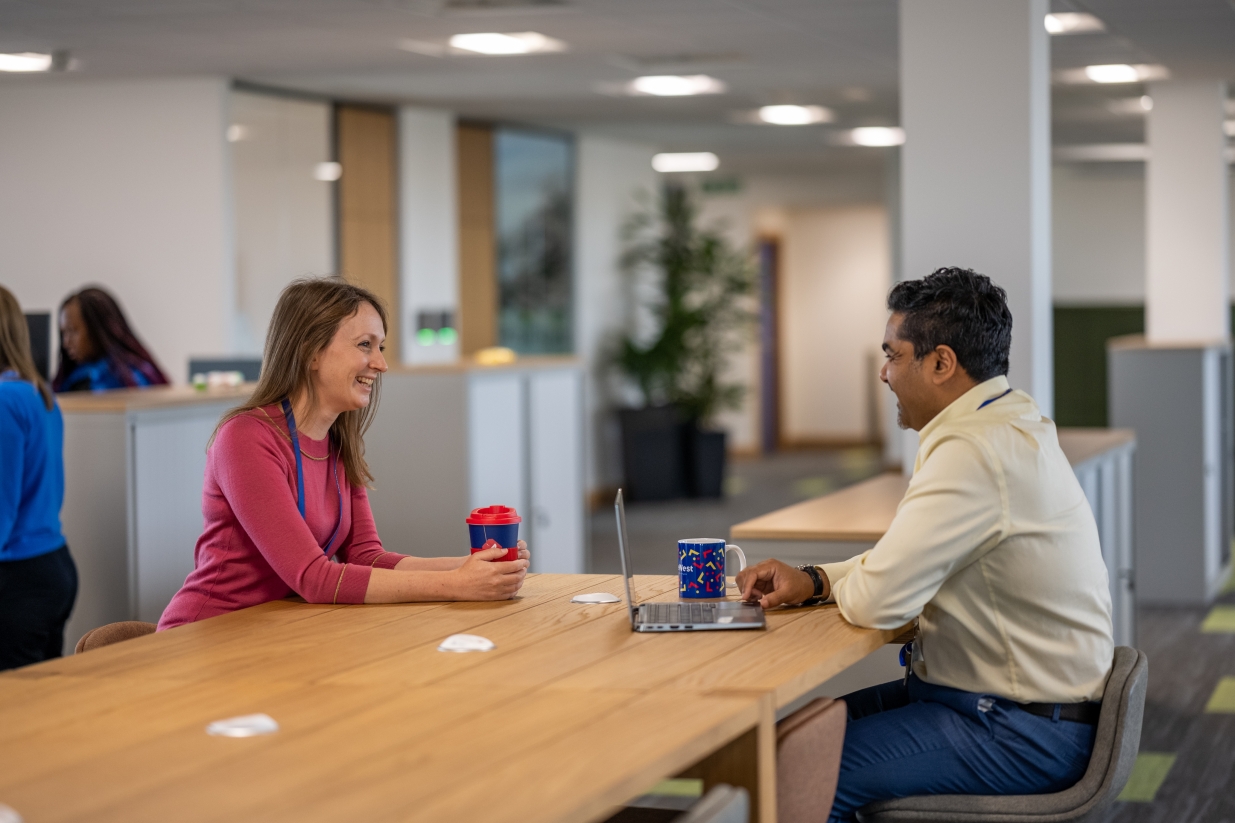
As part of our commitment to Creating Greener Futures Together, we are working hard to create sustainable homes, neighbourhoods and communities.
We are proud to have been named Green Business of the Year by the Business
Leaders Awards in 2021, for the measures we are taking to improve our business, homes, and environment. We were also ranked eighth by Housing Digital in their Top 30 Sustainable Housing Providers in the UK.
This year, we are shortlisted for the ASCP Best Initiative to Combat Fuel Poverty Crisis Award, and the Unlock Net Zero Award for Tenancy or Resident Contribution to Sustainable Living.
We are taking action to reduce our plastic waste and are committed to eliminating single waste plastic from our offices and building materials.
Our green purchasing system allows us to source plastic free alternatives to stationery and other consumables, helping our colleagues work more sustainably. Within our building materials we are taking a fabric-first approach, choosing more sustainable materials, minimising the amount of plastic used.
We are proud to have achieved our goal of sending zero waste from our three main offices to landfill.
Our commitment to sustainability extends beyond reducing plastic waste. We are proud to be accredited with a SHIFT Silver award, recognising our commitment to improving our CO2 emissions, water use, landfill waste and our response to climate change.
You can find out more about how we are Creating Greener Futures Together on our Sustainability page.

